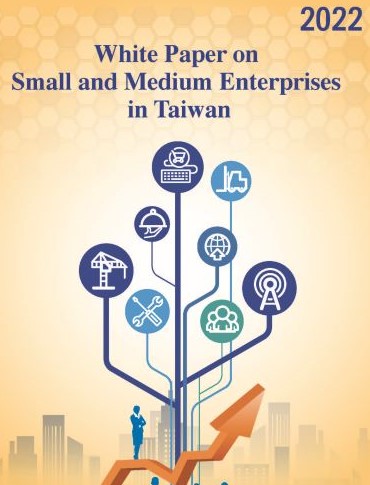SMEs Serve as the Backbone of Taiwan's Stable Economic Development
- Post date:2022-10-28
- Visitors:91288
As of 2021, Taiwan boasted more than 1.59 million small and medium enterprises (SMEs), according to the White Paper on Small and Medium Enterprises in Taiwan, 2022. This accounts for more than 98 percent of all enterprises, an all-time high. Further, SMEs employed 9.2 million people, representing more than 80 percent of the total workforce. In the same period, Taiwanese SMEs exceeded NT$26 trillion in total revenue of which nearly 90 percent was generated in the domestic market, accounting for more than half of the revenue generated by all domestic enterprises. Moreover, the increase in Taiwan's international trade and domestic investments in 2021 resulted in a spectacular increase in domestic revenue and exports, with exports achieving an annual growth rate of 25 percent. Such a performance is a testament to the major role SMEs play in the post-pandemic revitalization of Taiwan's economy and job market, as well as to SMEs' crucial position as the backbone of stable economic development.
This year's White Paper on Small and Medium Enterprises in Taiwan focuses on the "Survey on the Current Status and Demand of Digital Transformation Among Taiwan's SMEs in 2021." The survey examines the status of SMEs' digital transformation as well as key related issues. Major studies have found that SMEs face difficulties such as a lack of digital skills and talents, and thus seek to participate in government talent development programs to enhance digitalization. In addition, more than half of SMEs currently use simple word processors as their primary digitalization tool, but would like to invest more resources in advanced business applications such as data analytics software, customer experience services, and cloud integration systems. The government development programs support SMEs in implementing digital transformation and adjusting internal operations to enhance overall competitiveness.
In light of the changing domestic and international economic situation, the government continues to provide guidance to SMEs in a wide range of areas such as finance and funding, technological R&D, business incubation, urban and rural development, and export promotion. In addition, the government is also actively promoting measures to achieve net-zero carbon emissions and digital transformation, including the introduction of appropriate carbon emissions calculation tools, the provision of net-zero emissions consulting and diagnostic services, and other assistance to enhance SMEs' green competitiveness. To encourage the digital transformation of SMEs, the government has also launched various mobile payment applications, and provides 5G system integration services. For more SME-related strategies and policies, kindly refer to the latest version of the White Paper on Small and Medium Enterprises in Taiwan, 2022, available at: https://www.moeasmea.gov.tw/list-en-2572

